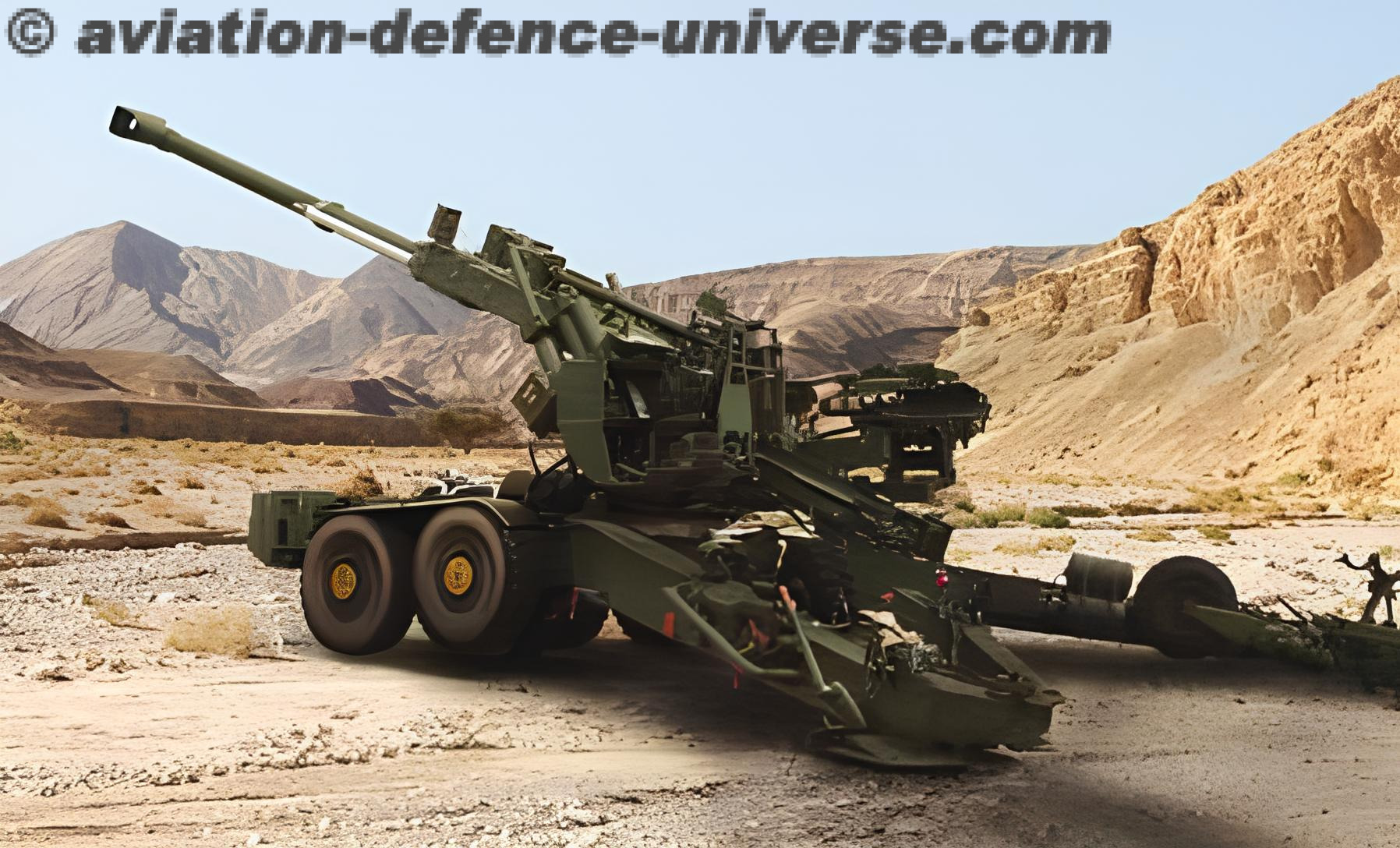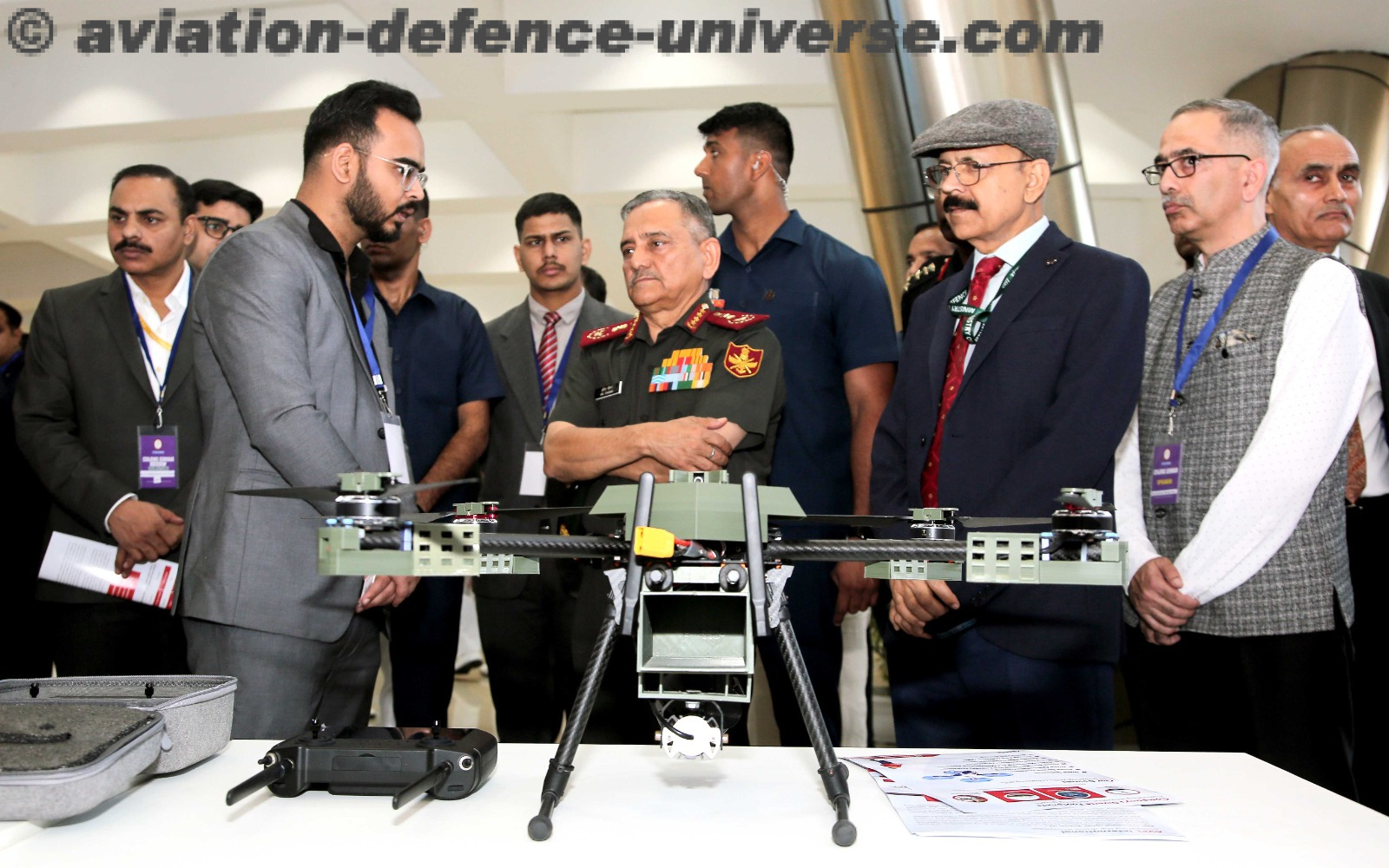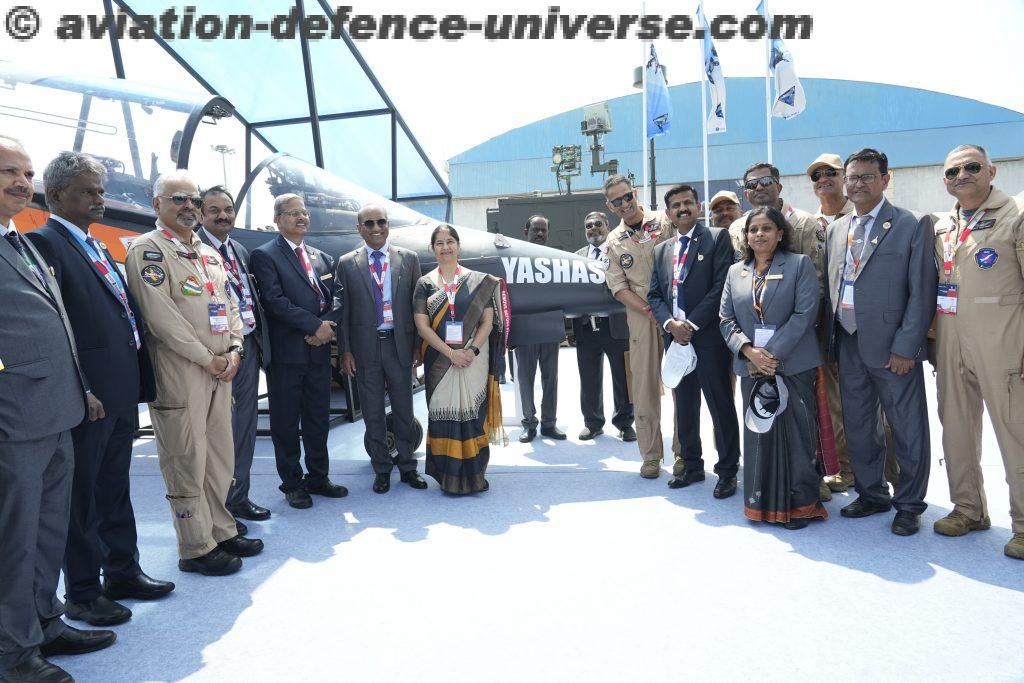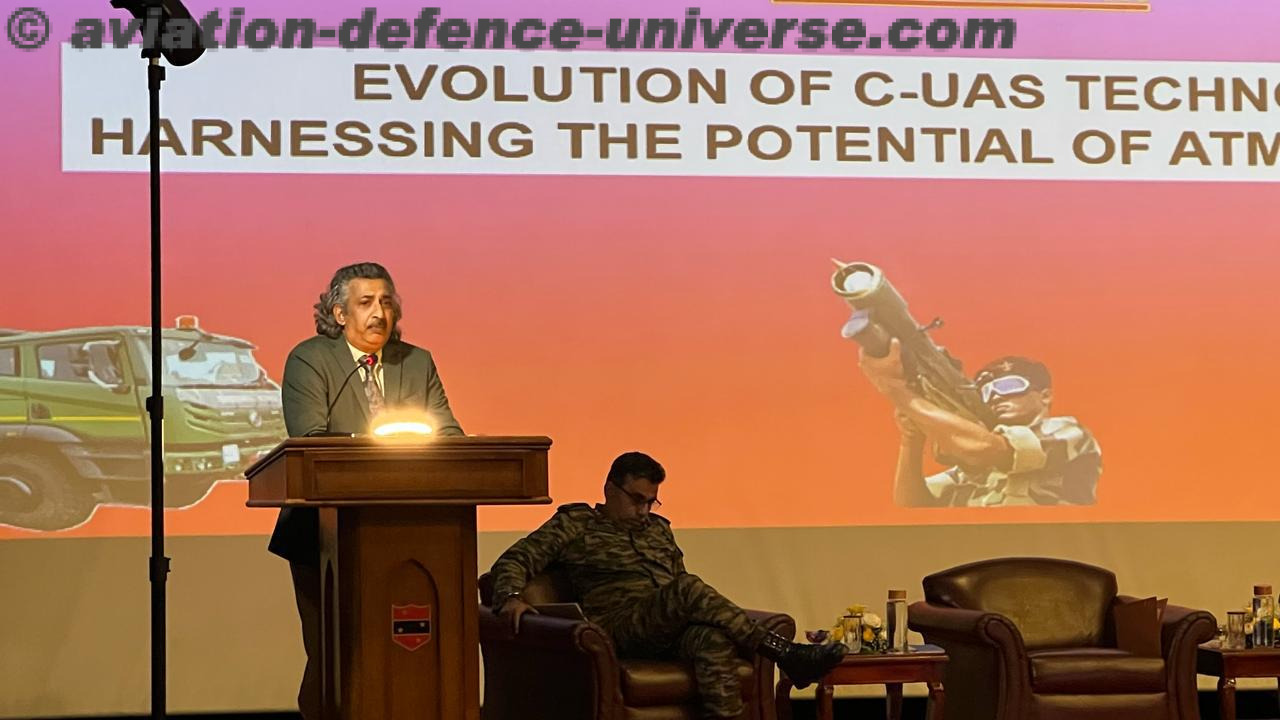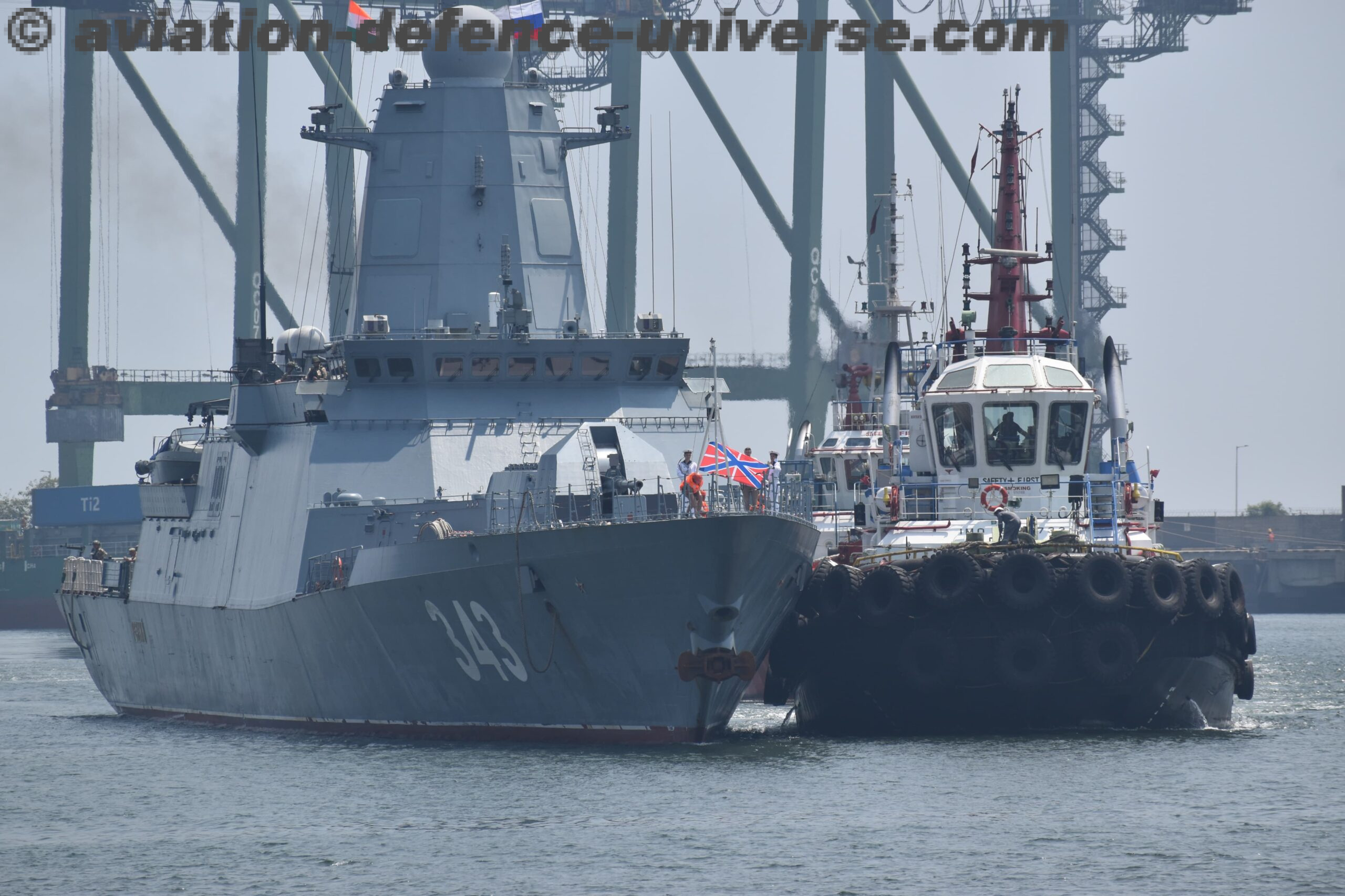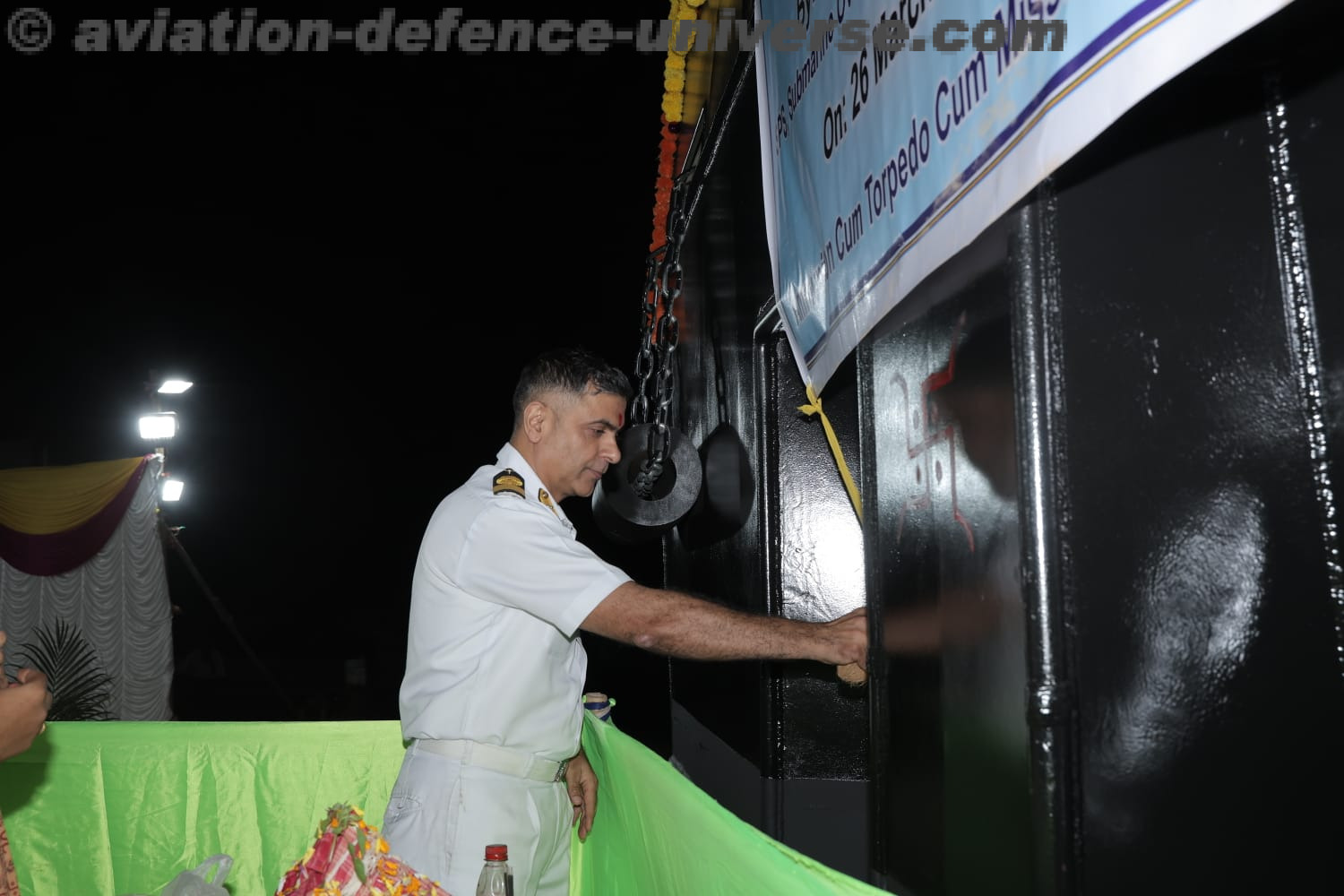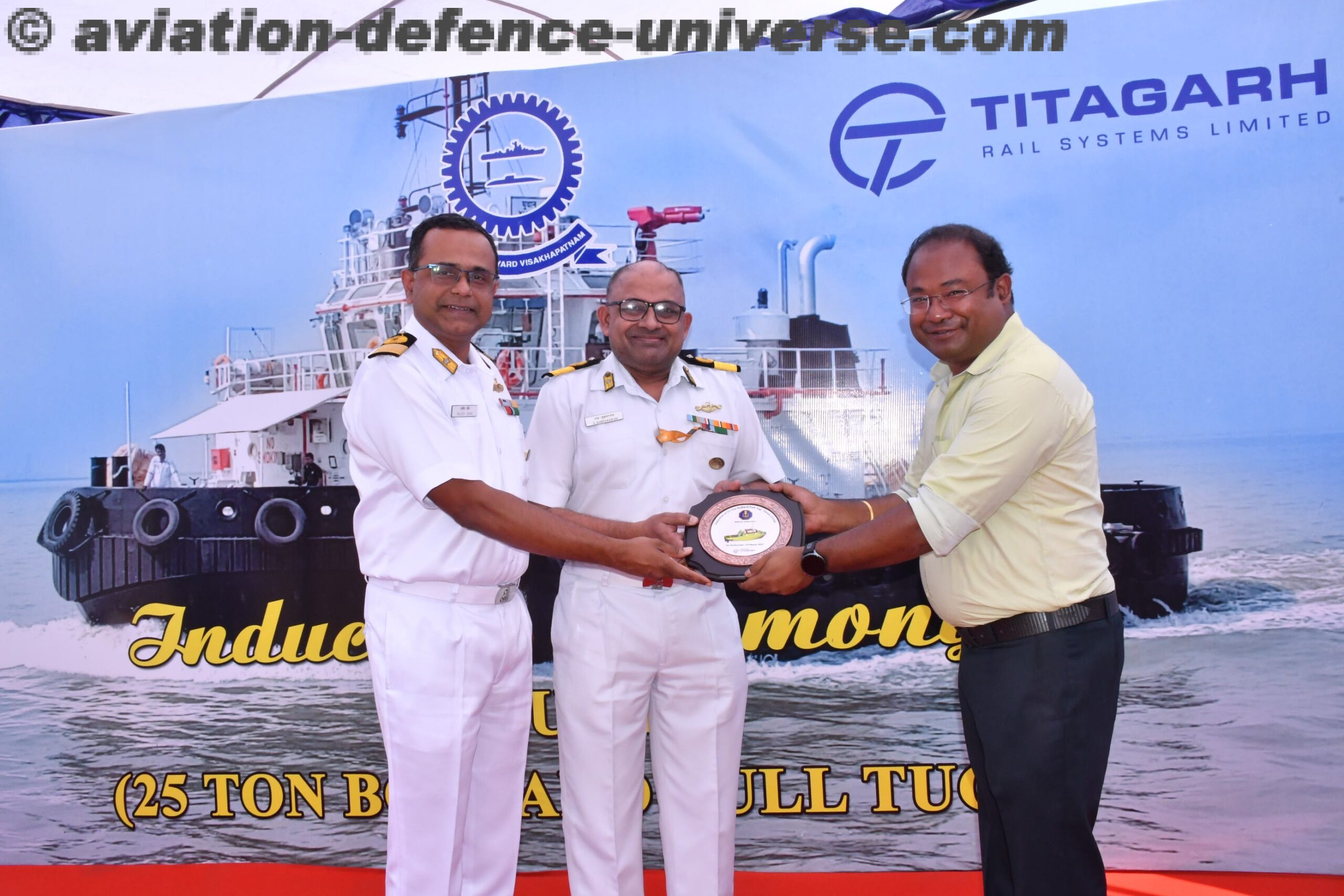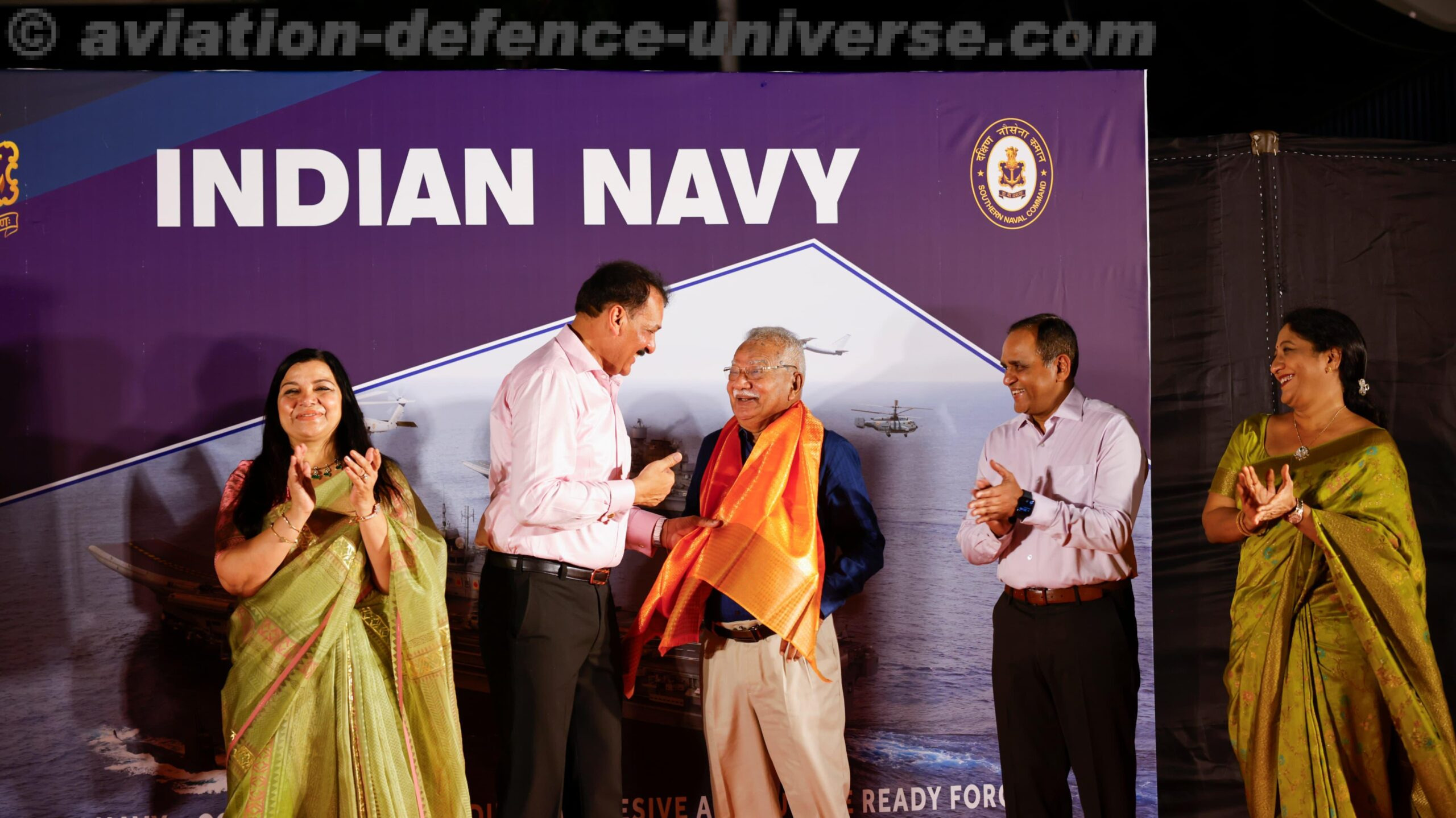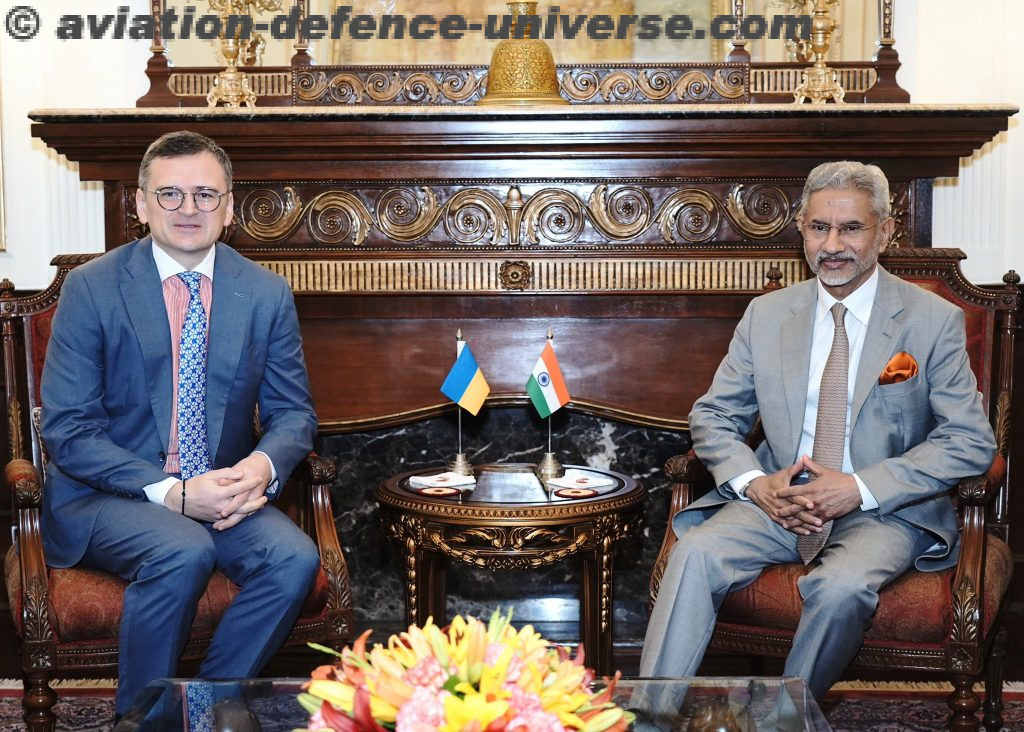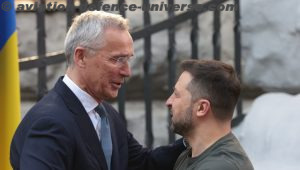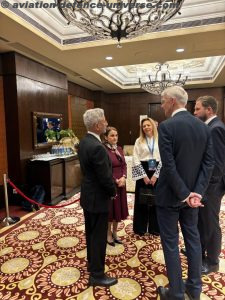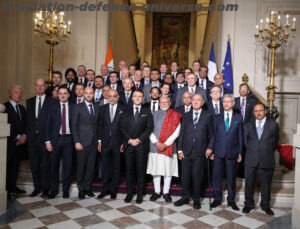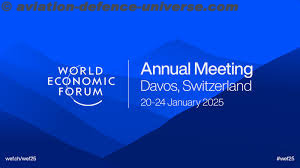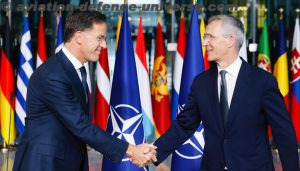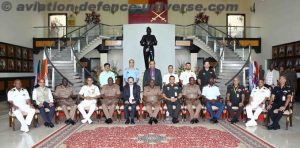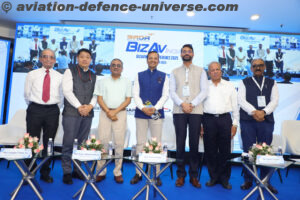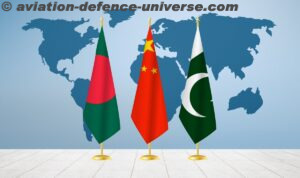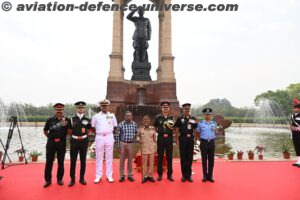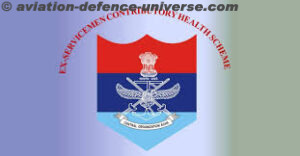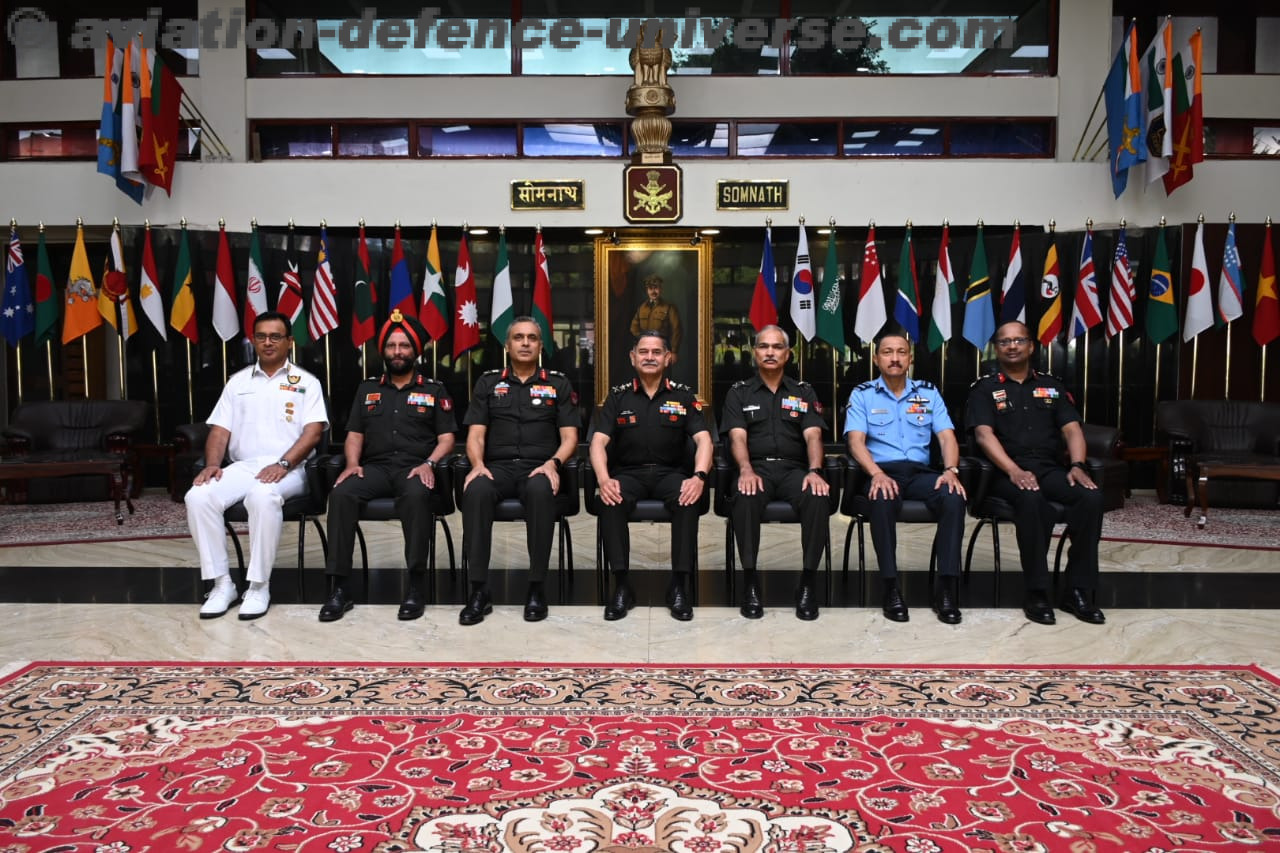- Promotes Zelensky’s peace formula
By Sangeeta Saxena
New Delhi. 01 April 2024. India continues to tread on the delicate thread of geopolitical balancing. Russia is an all weather friend and Ukraine a friend. India is genuinely happy with President Putin’s re-election and equally keen to see the end of the on-going war between the two former Soviet Union states. And as this situation continues Ukrainian Foreign Minister Dmytro Kuleba decided to accept India’s invitation to visit and talk.
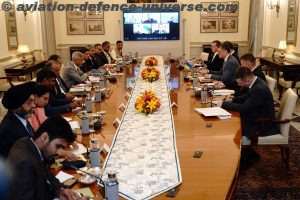 The two days trip of has been a cynosure of global eyes. Dr. S. Jaishankar, the Minister of External Affairs, and Vikram Misri, the Deputy National Security Adviser interacted exhaustively with the Ukrainian foreign minister during his visit. The goal of the March 29, 2024, meeting between EAM and Foreign Minister Kuleba was to strengthen bilateral relations between Ukraine and India, particularly in the areas of trade and investment, science and technology, defence, agriculture, health, culture, and education. A separate meeting between the two ministers was also held to discuss issues concerning the working groups and the India-Ukraine Inter-Governmental Commission on Trade, Economic, Scientific, Technical, Industrial, and Cultural Cooperation.
The two days trip of has been a cynosure of global eyes. Dr. S. Jaishankar, the Minister of External Affairs, and Vikram Misri, the Deputy National Security Adviser interacted exhaustively with the Ukrainian foreign minister during his visit. The goal of the March 29, 2024, meeting between EAM and Foreign Minister Kuleba was to strengthen bilateral relations between Ukraine and India, particularly in the areas of trade and investment, science and technology, defence, agriculture, health, culture, and education. A separate meeting between the two ministers was also held to discuss issues concerning the working groups and the India-Ukraine Inter-Governmental Commission on Trade, Economic, Scientific, Technical, Industrial, and Cultural Cooperation.
The 7th IGC meeting will take place later this year, as both parties have agreed to work towards. During the discussion of regional and international issues, there was a thorough examination of the ongoing conflict and the attempts to find a peaceful resolution. India and Ukraine have a robust and diverse partnership that has been shaped by frequent interactions at different levels and bilateral mechanism meetings.
In an official statement Kuleba said, “In New Delhi, I had sincere and comprehensive talks with Dr. Subrahmanyam Jaishankar about Ukrainian-Indian bilateral relations, the situation in our regions, and global security. We paid specific attention to the Peace Formula and next steps on the path of its implementation. We also co-chaired the Ukrainian-Indian intergovernmental commission review meeting and agreed to restore the level of cooperation between our countries that existed prior to the full-scale war launched by Russia, as well as identify new promising projects to take our relations to the next level ”.
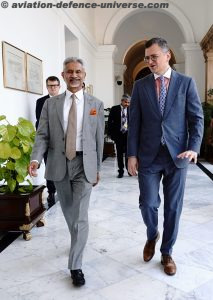 But this is not the first interaction of it’s kind between the two nations. They have in fact interacted on a number of levels in the past few months and the convening of bilateral mechanisms have also been satisfactory. This has given the relationship a certain momentum on both sides. The year started with a statement from the Ukrainian Minister of Foreign Affairs, “My first call in 2024 was with Indian Foreign Minister Dr. Subrahmanyam Jaishankar on Ukrainian-Indian relations. I informed my counterpart of Russia’s recent escalation of terror and mass air attacks, which caused civilian suffering and destruction. We discussed further cooperation on the Peace Formula. In this regard, I informed my counterpart of Ukraine’s vision for the Global Peace Summit of leaders. We agreed to hold the first meeting of the India-Ukraine Inter-Governmental Commission since 2018 in the near future. The rejuvenation of this primary mechanism of our bilateral ties will allow us to jointly move forward in a comprehensive manner.”
But this is not the first interaction of it’s kind between the two nations. They have in fact interacted on a number of levels in the past few months and the convening of bilateral mechanisms have also been satisfactory. This has given the relationship a certain momentum on both sides. The year started with a statement from the Ukrainian Minister of Foreign Affairs, “My first call in 2024 was with Indian Foreign Minister Dr. Subrahmanyam Jaishankar on Ukrainian-Indian relations. I informed my counterpart of Russia’s recent escalation of terror and mass air attacks, which caused civilian suffering and destruction. We discussed further cooperation on the Peace Formula. In this regard, I informed my counterpart of Ukraine’s vision for the Global Peace Summit of leaders. We agreed to hold the first meeting of the India-Ukraine Inter-Governmental Commission since 2018 in the near future. The rejuvenation of this primary mechanism of our bilateral ties will allow us to jointly move forward in a comprehensive manner.”
Recently the Iryna Borovets, the deputy minister of foreign affairs for Ukraine, visited India to take part in the “Raisina Dialogue,” one of the most important international gatherings on geopolitics and geoeconomics in Asia, where the Deputy Minister made Ukraine’s first formal presentation. Iryna Borovets participated in the conference and spoke at the panel – Back to the Future: A New Era of Conflict in Europe. “For Ukraine, it is very important the world community support the implementation of President Volodymyr Zelenskyy’s Peace Formula as the only possible way to achieve sustainable and rightful peace in our country,” she stated.
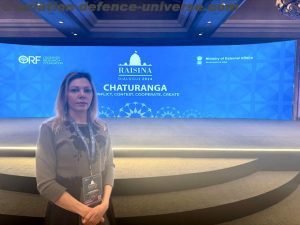 The Deputy Minister expressed gratitude to the Indian side for its steadfast support of Ukraine’s sovereignty and territorial integrity. She invited India to take part in the Global Peace Summit and underlined the significance of India’s involvement in putting President Volodymyr Zelenskyy’s Peace Formula into action. She also conveyed her gratitude to the Indian government and people for the humanitarian assistance given to Ukraine and the suggested framework for carrying it out, specifically for projects aimed at rebuilding vital social infrastructure in Ukrainian communities—high impact community development initiatives.
The Deputy Minister expressed gratitude to the Indian side for its steadfast support of Ukraine’s sovereignty and territorial integrity. She invited India to take part in the Global Peace Summit and underlined the significance of India’s involvement in putting President Volodymyr Zelenskyy’s Peace Formula into action. She also conveyed her gratitude to the Indian government and people for the humanitarian assistance given to Ukraine and the suggested framework for carrying it out, specifically for projects aimed at rebuilding vital social infrastructure in Ukrainian communities—high impact community development initiatives.
It is imperative here to understand what President Zelensky’s Peace Formula is. He stated that all wars come to an end, and so will Russia’s war against Ukraine and Ukrainians. On October 11, 2022, President of Ukraine announced to the leaders of the Group of Seven (G7) countries a “peace formula” to overcome the Russian threat and feels today, this 10-point plan remains the only way to restore just and long-lasting peace for Ukraine. Let us understand each point of this plan as the Ukrainian MFA website explains.
No one has the right to blackmail the world with a radioactive disaster. And Russia is not an exemption. But it tries to be, with the constant attempts to rattle its nuclear arsenal. This nuclear blackmail has to stop.
Russia is also constantly endangering Ukrainian nuclear power plants, temporarily occupying the Zaporizhzhia NPP in particular. Russia must immediately withdraw all its militants from its territory. The station must be immediately transferred to the control of the IAEA and the Ukrainian personnel. The normal connection of the station to the power grid must be restored immediately so that nothing threatens the stability of the reactors.
- Food security
Once again, people’s lives and well-being should not be a part of Russia’s blackmail or famine games. In a year of the Black Sea Grain Initiative, Ukraine was able to export 32.8 million tons of food to countries in Asia, Africa, and Europe. Now, with Russia’s withdrawal from the agreement, people will suffer the consequences. The grain initiative and Ukrainian agricultural export must be restored for the sake of millions around the world.
- Energy security
Attacks on critical civilian infrastructure are unacceptable. As Russia is trying to turn cold into a weapon against civilians, Ukrainian power plants, power lines, and other energy infrastructure has to be properly protected. The fundamental steps – like price restrictions on Russian energy resources – should be introduced to ensure that energy resources are no longer used as weapons.
- Release of all prisoners and deportees
Today, thousands of Ukrainian people, both military and civilians, are in Russian captivity. Many have been forcefully deported, including at least 20,000 children. Many are subjected to brutal torture and abuse right now. Ukraine proposes the release of prisoners – “all for all”, and the release of all children and adults who were illegally deported to Russia.
- Implementation of the UN Charter and restoration of Ukraine’s territorial integrity and the world order
“All Members shall refrain in their international relations from the threat or use of force against the territorial integrity or political independence of any state” Article 2 of the UN Charter states. By invading Ukraine, Russia has violated various international agreements, laws, and principles.
Those can not apply partially if we want to build a future, where sovereignty and international borders are respected. That order, brutally attacked by Russia must be restored. And so does Ukraine’s territorial integrity – it is not up for negotiations.
- Withdrawal of Russian troops and cessation of hostilities
To cease the hostilities, Russia must withdraw all its troops and armed formations from the territory of Ukraine, plain and simple. Ukraine’s full control over its state border, recognized internationally, needs to be restored.
Without this, no long-lasting peace can be achieved. Each day Russian soldiers remain on Ukrainian land, Ukrainians have to fight and die to protect their homes and to shield the world from the long-lasting consequences of this aggression.
- Justice
No crime should be left unpunished – and as of August 2023, Ukraine had registered more than 100,000 war crimes committed by Russian military in this war. Hardly a day has passed in the years of Russian aggression without civilians being killed or injured by their shelling. With every liberated part of the country, the world witnessed mass graves, torture chambers, and many more horrors of Russian occupation. That is why the Special Tribunal regarding the crime of Russia’s aggression against Ukraine has to be established. There is also a need for an international mechanism to make Russia compensate for all the damages caused by this war.
- Immediate protection of the environment
The huge damage to the environment and wildlife was caused by Russian invasion: burned forests, mined fields, polluted waters, killed animals. Just the environmental damage caused by the Russians’ blowing up of the Kakhovka hydroelectric power plant dam has been approximately $1.5 billion – but it is hard to put numbers to the damages that changed the ecosystem for decades to come. And that is a challenge for the whole world.
- Prevention of escalation
Ukraine is not a member of any of the alliances, and the Budapest memorandum has not been able to ensure the country’s safety in practice. Therefore, when the current Russian invasion is repelled, it is essential to prevent any chance of its repetition or further escalation. This can only be achieved with proper and effective security guarantees for Ukraine, as well as renewed post-war security architecture in the Euro-Atlantic space that will include Ukraine.
- Confirmation of the end of the war
The implementation of all named antiwar measures cannot, and should not take long. After the hostilities are ceased, and security and justice are restored, the parties should sign an official document confirming the end of the war.
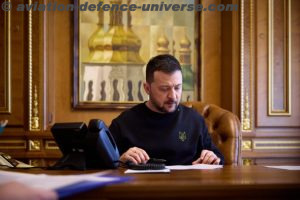 Zelensky feels there are no alternatives to this peace plan: only Ukraine, the country fighting against this war of aggression, can define what just and sustainable peace looks like. Therefore, all the initiatives of other states for a peaceful settlement can only be based on the Ukrainian peace formula. But the participation of all the nations and international organizations, except the aggressor state, is extremely welcomed. Ukraine calls on countries to support the plan, focus on particular points, and help to implement them as soon as possible.
Zelensky feels there are no alternatives to this peace plan: only Ukraine, the country fighting against this war of aggression, can define what just and sustainable peace looks like. Therefore, all the initiatives of other states for a peaceful settlement can only be based on the Ukrainian peace formula. But the participation of all the nations and international organizations, except the aggressor state, is extremely welcomed. Ukraine calls on countries to support the plan, focus on particular points, and help to implement them as soon as possible.
The peace formula of Ukrainian President Volodymyr Zelenskyy has already been welcomed by several dozen countries around the globe. In May 2023, 46 member states of the Council of Europe expressed their support for the plan during the summit. In June, it was also supported by the Parliamentary Assembly of the Council of Europe. In August 2023, a summit concerning the peace plan was held in Jeddah (Saudi Arabia). About 40 countries participated in the meetings, and most have decided how they will make their contribution to help archive the points outlined in the Ukrainian peace plan.
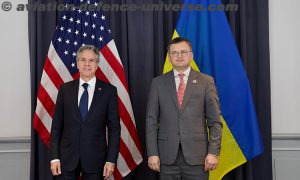 Kuleba in the month of March before coming to India either met or spoke with international bodies and world leaders promoting the formula. Dmytro spoke with US Secretary of State Anthony Blinken and informed, “I spoke with Antony Blinken and thanked the United States for the recent military aid package, which will help our people resist Russian aggression. I emphasised the need and urgency of continued U.S. and international support for Ukraine, including air defence and artillery ammunition. We cannot allow Russia to use delays in aid to advance, putting all of Europe and the democratic world at risk of an even larger war. We discussed ways forward to approve the critically needed supplemental. Ukraine has demonstrated repeatedly in recent years that with sufficient support, we can defeat Russia on the battlefield. Failure to continue supporting Ukraine would severely undermine the U.S. leadership all across the world and jeopardise American national security. We also exchanged views on the anticipated outcomes of the NATO Washington summit later this year”.
Kuleba in the month of March before coming to India either met or spoke with international bodies and world leaders promoting the formula. Dmytro spoke with US Secretary of State Anthony Blinken and informed, “I spoke with Antony Blinken and thanked the United States for the recent military aid package, which will help our people resist Russian aggression. I emphasised the need and urgency of continued U.S. and international support for Ukraine, including air defence and artillery ammunition. We cannot allow Russia to use delays in aid to advance, putting all of Europe and the democratic world at risk of an even larger war. We discussed ways forward to approve the critically needed supplemental. Ukraine has demonstrated repeatedly in recent years that with sufficient support, we can defeat Russia on the battlefield. Failure to continue supporting Ukraine would severely undermine the U.S. leadership all across the world and jeopardise American national security. We also exchanged views on the anticipated outcomes of the NATO Washington summit later this year”.
He also stated after speaking with NATO’s Secretary General, “I spoke with Jens Stoltenberg to thank him for his personal efforts to ensure NATO support for Ukraine. I raised the importance of doubling down on international efforts to increase and speed up weapons and ammunition supplies to Ukraine. We coordinated positions ahead of the NATO-Ukraine Council meeting in April. Ukraine welcomes efforts aimed at increasing NATO’s role in providing Ukraine with everything it needs to repel Russian aggression. We require unrestricted support; the drop-by-drop approach of aiding Ukraine is no longer effective.”
Josep Borrell, the High Representative of the European Union for Foreign Affairs and Security Policy, spoke with Dmytro Kuleba over the phone and was briefed by Kuleba on Russian ballistic missile strikes on the Ukrainian capital and other cities. The Ukrainian Foreign Minister stated that he appreciated HRVP’s expression of support and concern regarding the number of Russian missiles fired at Ukraine. “I stressed the importance of delivering more Patriot and other air defence systems capable of intercepting ballistic missiles to Ukraine. I also emphasised that Ukraine is currently the only country in the world that is being attacked by ballistic missiles almost daily. Therefore, Patriots must be stationed here and now to save human lives, rather than remaining in places where the missile threat is zero. We discussed what the EU can do to help Ukraine get more Patriots and other air defence systems ASAP. I appreciate HRVP Borrell’s and the EU’s support, ” he stated.
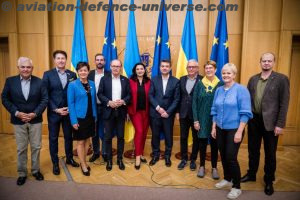 The delegation of Heads of Committees of the European Parliament, headed by David McAllister, the chairman of the Committee on Foreign Affairs, and Bernd Lange, the chairman of the Conference of Committee Chairs, met with Yevhen Perebyinis, the deputy minister of foreign affairs of Ukraine, on March 26, 2024. As a condition for the approval of the negotiation framework and the actual beginning of the negotiation process on Ukraine’s acquisition of EU membership, the Deputy Minister updated interlocutors on the implementation by Ukraine of all four recommendations made by the European Commission in its report on Ukraine within the framework of the 2023 Enlargement Package. Particular focus was given to Ukraine’s foreign policy initiatives, specifically the execution of President Zelensky’s Peace Formula.
The delegation of Heads of Committees of the European Parliament, headed by David McAllister, the chairman of the Committee on Foreign Affairs, and Bernd Lange, the chairman of the Conference of Committee Chairs, met with Yevhen Perebyinis, the deputy minister of foreign affairs of Ukraine, on March 26, 2024. As a condition for the approval of the negotiation framework and the actual beginning of the negotiation process on Ukraine’s acquisition of EU membership, the Deputy Minister updated interlocutors on the implementation by Ukraine of all four recommendations made by the European Commission in its report on Ukraine within the framework of the 2023 Enlargement Package. Particular focus was given to Ukraine’s foreign policy initiatives, specifically the execution of President Zelensky’s Peace Formula.
He attended a meeting of the EU Foreign Affairs Council on Monday, March 18 in which he urged European allies to move quickly to fulfil their commitment to developing the defence industries of both the European Union and Ukraine, as well as to augment and expedite the supply of arms and ammunition to the Ukrainian military. The final decision to provide an extra €5 billion for military assistance to Ukraine under the European Peace Fund was made at a meeting of the EU Foreign Affairs Council that was attended by the foreign minister of Ukraine. The Minister conveyed his appreciation to his colleagues for taking this crucial action. Dmytro Kuleba also expressed gratitude to all EU members that had already helped to execute the timely initiative by the Czech Republic to buy artillery ammunition for Ukraine.
On May 20, 2023, in Hiroshima, the Indian Prime Minister Narendra Modi met with Volodymyr Zelenskyy, President of Ukraine, on the fringes of the G-7 Summit. The world has been greatly impacted by the conflict in Ukraine, the prime minister said. He did, however, emphasise that this is a human values and humanity issue rather than a political or economic one. The Prime Minister made it clear that India supports diplomatic efforts and dialogue to find a solution. He declared that India and the Prime Minister would use every resource at our disposal to find a solution. The Prime Minister declared that India will keep helping the Ukrainian people humanitarianly. Emine Dzhaparova First Foreign Affairs Minister of Ukraine on her visit to India last year had invited India to participate in the implementation of the Ukrainian Peace Formula.
But the million dollar question is has Zelensky or his chosen arbitrator discussed peace at all with the Russians. After all the war is not Ukraine with no one, it is a war between two nations. History world over has seen similar situation where one power which is neutral to the two warring factions tries to create that balanced understanding. In Russia-Ukraine’s case none of the NATO nations nor erstwhile Soviet Union offshoots, neither China or Arab World will make logical peace makers. It is probably here that India with it’s geo-political rise, international reputation as a peace focussed nation and it’s leadership position in the global south. And this is why ‘Bharat Matters’.





